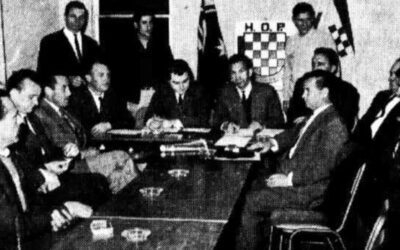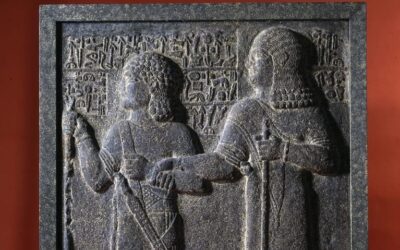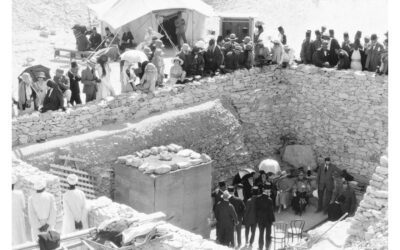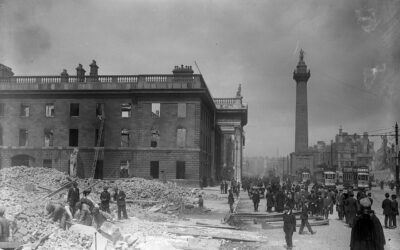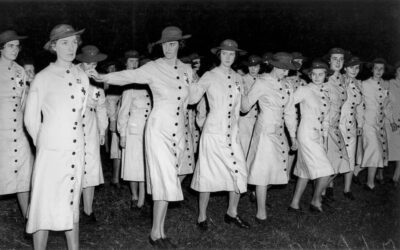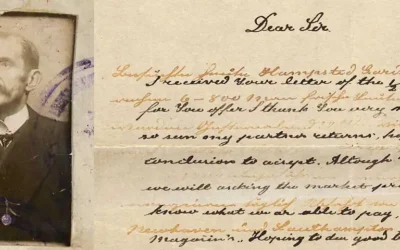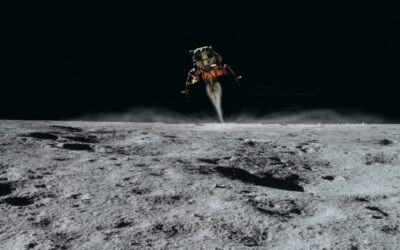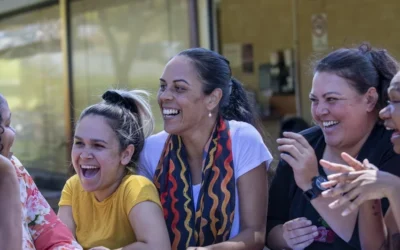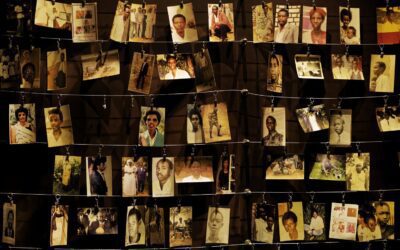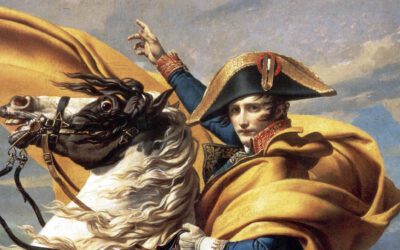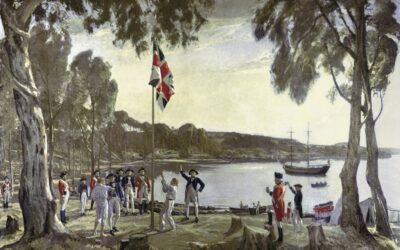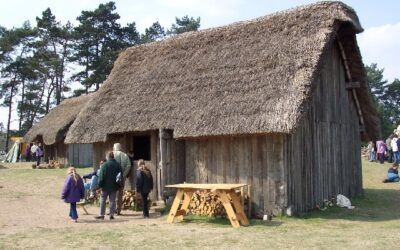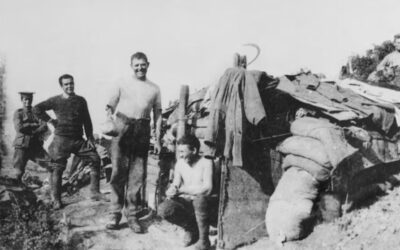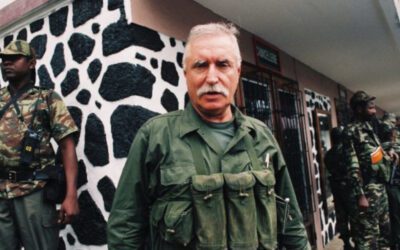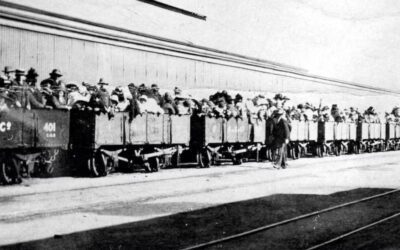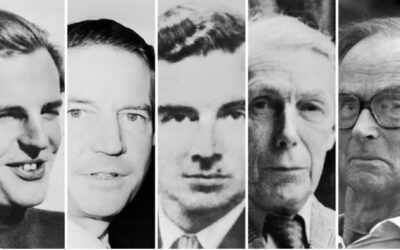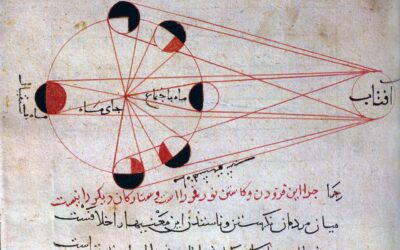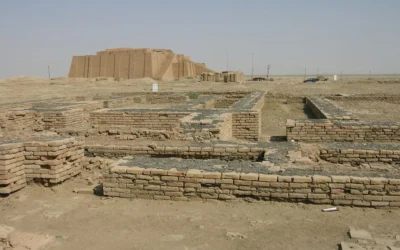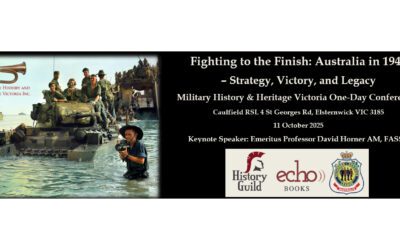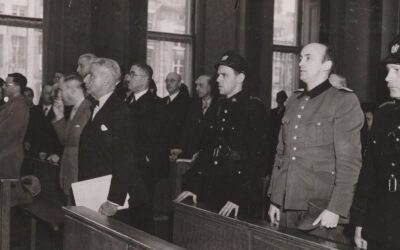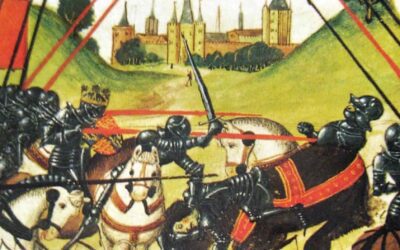History Guild publishes articles that provide interesting insights into history. We cover all aspects of history, from around the world and across time.
Ustaše in Australia: the “Citadel” of a Fascist Legacy
Reading time: 14 minutes
Between 1947 and 1952, for 170,000 non-Jewish “displaced persons,” Australia offered a chance to exit the dark, harrowing night of World War II in Europe. Many of these were hungry, traumatised, seeking peace and shelter, a place to work and rebuild. But with them came the kind of settlers which populate nightmares: war criminals, outright fascists, and aiders and abettors of the Nazi regime and its puppets in Eastern Europe.
Hindi, Greek and English all come from a single ancient language – here’s how we know
Reading time: 5 minutes
Yet patterns in their descendant languages preserve enough structure to enable us to manage at least a shadowy glimpse of them. The theories and methods pioneered through this work will continue to fuel research into the reconstruction of human ethnolinguistic prehistories worldwide for many years to come.
Tutmania: How Ancient Egypt Defined the Roaring Twenties
Reading time: 6 minutes
As the year 1922 dragged to a close, a weary public feared that it was doomed to die in doldrums. On the harrowing heels of World War I and the Spanish Flu pandemic came a “summer journalistically so dull that an English farmer’s report of a gooseberry the size of a crabapple achieved the main news pages of the London metropolitan dailies.” One Lord Carnarvon remembered that “the public was in a state of boredom with news of reparations, conferences, and mandates, and craved for some new topic of conversation.”
The Irish Rising that shaped Australia
Reading time: 4 minutes
Even though a rebellion in Dublin might seem relatively minor in the grand scheme of things,” says Professor of Irish Studies at Notre Dame, Declan Kiberd, “it would actually be the pin piercing the heart of the imperial giant.
Life in an Australian field hospital in the Med during WW2
Reading time: 5 minutes
In our documentation of eyewitness accounts of Australians in the Med during WW II, we have mainly focused on the experiences of frontline troops and sailors, men who faced enemy fire and worse. What about people a little farther back from the front, those who took care of the wounded?
Karl Muller and the fatal lemon
Reading time: 6 minutes
Britain had been wary of foreign agents operating within its shores in the run up to the First World War, and the Secret Service Bureau – now commonly known as MI5 – had been established in 1909. It had found great success rounding up German spies when the conflict broke out. Nonetheless, it was vigilant that enemy operatives might attempt to send reports on Britain’s military and economy back home.
The Most Scarily Accurate Predictions in History
Reading time: 7 minutes
Humans have always loved predicting the future. From ancient divination in the Roman Empire to newspapers and pundits such as John Watkins in 1900, foreseeing events in the future correctly has ranged from an apparent valued skill to a fun past-time.
Of course, not all predictions turn out true. In fact, most don’t.
New evidence confirms our Indigenous languages have a common source, but how they spread remains a mystery
Reading time: 6 minutes
Have you ever wondered how Australia’s many Indigenous languages relate to one another and how far back the connections go? The Australian continent has been settled by Indigenous people for at least 50,000 years, but just how old are the languages spoken today and where did they originate? Our research provides some answers to these questions – and the answers throw up new and interesting puzzles.
Lessons from the UN peacekeeping mission in Rwanda, three decades after the genocide it failed to stop
Reading time: 6 minutes
Dispatched with a fatally timid mission, many ordinary U.N. soldiers in Rwanda took extraordinary actions, using diplomacy, cultural awareness and community engagement. Their actions saved close to 30,000 lives, according to Romeo Dallaire, who led the U.N.’s deployment in Rwanda. Learning from what actually worked on this famously failed mission can save lives in the future.
Napoleon’s bicentenary: why celebrating the French emperor has become so controversial
Reading time: 5 minutes
Napoleon Bonaparte may have died 200 years ago, but the vast ramifications of his rule can still be felt – and not only in France. This year marks the last in a series of bicentenaries since 1969, the 200th anniversary of his birth, but the chance to give the most famous emperor in French history another send-off is proving distinctly tricky – and not only because of COVID-19 restrictions.
From Captain Cook to the First Fleet: how Botany Bay was chosen over Africa as a new British penal colony
Reading time: 7 minutes
After Captain Cook’s Endeavour voyage in 1770, the east coast of Australia was drawn on European maps of the globe for the first time. Yet, in terms of European contact with the continent, there was an 18-year lull in between Cook’s 1770 landings and the arrival of the First Fleet in 1788.
Love Thy Neighbour: The Importance of Guest Rights in Medieval England
Reading time: 7 minutes
In almost every country in the modern world, although some more than others, various institutions, laws and social norms protect travellers. Yet the institutions such as the courts and the government, or the enforcing bodies such as the police, have not always existed.
How the Great War shaped the foundations of Australia’s future
Reading time: 9 minutes
It is striking that 2015 is the 110th anniversary of the Gallipoli offensive, the 80th anniversary of end of the Second World War in the Pacific, and the 50th anniversary of the end of the Vietnam War. This is a good time to reflect not only on the actions of those wars, but on their consequences and their enduring legacies.
The Incredible Career of Mercenary Bob Denard, Viceroy of the Comoros
Reading time: 14 minutes Bob Denard had not quite reached his 32nd birthday when a newspaper article caught his eye. It was a profile on the foreign mercenaries fighting for Moïse Tshombe’s breakaway state, Katanga, in southern Congo, and it contained a photograph of...
Why history instruction is critical for combating online misinformation
Reading time: 6 minutes
Can you tell fact from fiction online? In a digital world, few questions are more important or more challenging. For years, some commentators have called for K-12 teachers to take on fake news, media literacy, or online misinformation by doubling down on critical thinking. This push for schools to do a better job preparing young people to differentiate between low- and high-quality information often focuses on social studies classes.
New evidence from West Papua offers fresh clues about how and when humans first moved into the Pacific
Reading time: 6 minutes
Charting the archaeology of West Papua is vital because it helps us understand where the ancestors of the wider Pacific came from and how they adapted to living in this new and unfamiliar sea of islands.
World War I in Broken Hill: a Turkish-Inspired Attack on Australia’s Home Soil
Reading time: 14 minutes From August 1914 to November 1918, over 416,000 men served in Australian forces fighting the First World War, in theatres ranging from the Pacific to the Middle East and France. 60,000 died far from home in battles fought thousands of miles...
Confessions from the Cambridge Five: a file release from MI5
Reading time: 7 minutes
Over 100 Security Service (MI5) files are being released today covering a wide range of subjects and individuals. Most notably, the files offer fresh perspectives on notorious members of the Cambridge Five spy ring, namely Anthony Blunt, Kim Philby and John Cairncross.
Changing the Eurocentric narrative about the history of science – why multiculturalism matters
Reading time: 6 minutes
There is nothing more intimately personal than the thoughts in your head, and yet you did not conceive them. They are a continuation of knowledge and ideas that for thousands of years have travelled the globe, shaped by countless minds from all civilizations. In a time of seemingly growing division, that is a thought that ought to bring us all together.
The world’s first museum was curated by a princess. A tour reveals the origins of the zodiac, calculus and writing
Reading time: 6 minutes
Around 2,500 years ago, a princess living in what is now modern-day Iraq collected a number of artefacts, including a statue, a boundary stone and a mace head. The items, which show signs of preservation, date from around 2100 BCE to 600 BCE. This collection, it is generally thought, was the world’s first known “museum”.
Full Program Announced! Fighting to the Finish: Australia in 1945 – Strategy, Victory and Legacy Conference, Melbourne. Book Now.
Military History & Heritage Victoria is excited to announce that tickets are now on sale for our next conference – Fighting to the Finish: Australia in 1945 – Strategy, Victory and Legacy – which will be held on 11th October 2025 in Melbourne. History Guild is...
How opening an archive caused consternation in the Netherlands
Reading time: 1 minute Generally speaking, making an archive accessible to the public isn't something covered by the national news. However, in the Netherlands a massive public debate was sparked when an archive with the files of over 400.000 people suspected of...
Wars of the Roses: how the French meddled in this very English conflict
Reading time: 6 minutes
The Wars of the Roses are normally portrayed as a series of battles between two warring houses, York and Lancaster, over who was rightly king of England. However, they were about much more than that. In many ways, the wars were really about standards of government.
Open Letter to the Prime Minister: Restoring Equity in Higher Education
Reading time: 10 minutes The following Open Letter was sent by the Australian Historical Association to the Prime Minister of Australia. History Guild strongly agrees with it's sentiments. If you would like to support this campaign you can sign a petition here. We...

